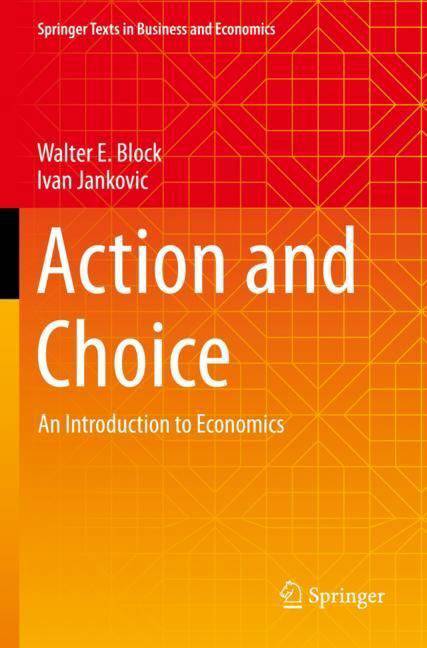
- Retrait gratuit dans votre magasin Club
- 7.000.000 titres dans notre catalogue
- Payer en toute sécurité
- Toujours un magasin près de chez vous
- Retrait gratuit dans votre magasin Club
- 7.000.000 titres dans notre catalogue
- Payer en toute sécurité
- Toujours un magasin près de chez vous
Description
This textbook is based upon a philosophical method of logical deduction from basic principles such as scarcity, individual choice and subjectivism. This textbook attempts to show that all complex phenomena of economic theory such as prices of consumer goods and factors of production, saving and consumption, interest and profit, can be explained by the same primitive psychological principles of scarcity and substitution on the margin that could be used to describe economizing Robinson Crusoe on a desert island or two cavemen catching fish or exchanging apples for oranges. This textbook distils the essence of economic science prevailing in price theory before the 1930s, which the authors' argue is superior to currently popular mainstream theory into a readable and student-friendly textbook format. This is an introductory textbook written in the tradition of Menger, Bohm-Bawerk, Mises and Hayek, instead in the tradition of Alfred Marshall and John Maynard Keynes, as almost all modern textbooks are. The authors offer a text not predicated on physics envy; on an attempt to liken economics to the physical sciences, on the basis of "empirical evidence", statistics and verification.
Spécifications
Parties prenantes
- Auteur(s) :
- Editeur:
Contenu
- Nombre de pages :
- 252
- Langue:
- Anglais
- Collection :
Caractéristiques
- EAN:
- 9789811937538
- Date de parution :
- 10-11-23
- Format:
- Livre broché
- Format numérique:
- Trade paperback (VS)
- Dimensions :
- 155 mm x 235 mm
- Poids :
- 486 g







